What are Micas
Micas are a group of silicate minerals known for their layered structure, which gives them their characteristic shimmer and reflective qualities. They are widely used across various industries due to their unique physical and chemical properties. Micas cater to sectors such as cosmetics, electronics, construction, and paints, where they serve both functional and aesthetic purposes. At their core, micas are valued for their ability to withstand high temperatures, resist electrical conductivity, and provide a natural sparkle to products.
The versatility of mica minerals comes from the principle of their crystalline structure, which allows them to be split into thin sheets or ground into a fine powder. This flexibility in form factor enables manufacturers to incorporate mica in numerous applications from eye shadows to insulation materials. When used in cosmetics, the fine particles reflect light, creating a luminous effect on the skin. In industrial settings, the thermal stability and electrical resistance of mica make it an excellent insulator for electronic components.
Micas are also appreciated for their chemical inertness. They do not react with most substances and can maintain stability when exposed to harsh environmental conditions. This makes mica an ideal choice for high-performance coatings and plastics that require long-term durability. For businesses looking to utilize micas in their products, understanding these principles is crucial in selecting the right type of mica for their specific application.
Types of Micas
Several types of micas exist, each with distinct qualities suitable for different applications:
Muscovite Mica: As one of the most common forms of mica, muscovite is transparent and highly resistant to heat. It is often used in electrical insulators, window manufacturing (as a glass substitute), and as an insulating material in home appliances.
Phlogopite Mica: This variety is rich in magnesium and has excellent heat resistance properties. Phlogopite is typically incorporated into products that require thermal insulation or where high temperatures are involved.
Biotite Mica: Known for its dark color due to high iron content, biotite is not as heat-resistant as other forms but is used in geological and scientific research to determine mineral ages and histories.
Lepidolite Mica: Containing lithium, lepidolite is utilized in the production of lithium metal as well as in electronics and specialized glasses.
Synthetic Mica: Created in laboratories, synthetic mica is engineered to have controlled properties and fewer impurities. It's widely used in cosmetic formulations where purity is essential.
Each type of mica finds its niche in specific industries based on its properties, such as heat resistance or electrical insulation capabilities.
How to choose Micas
Selecting the right type of mica for your business needs careful consideration of several factors:
Thermal Resistance: If your application involves high temperatures, prioritize micas with superior heat-resistant qualities like phlogopite or synthetic mica.
Electrical Properties: For insulation purposes or electronic applications, muscovite's electrical resistance makes it a strong candidate.
Appearance and Luster: Cosmetic applications often require micas that offer a shimmering effect. Here one might consider synthetic mica due to its purity and consistent quality.
Chemical Composition: Depending on the application's exposure to chemicals or environmental conditions, select a type of mica known for its inertness and stability.
Regulatory Compliance: Make sure the chosen mica meets all necessary industry regulations especially for use in food-grade or cosmetic products.
Businesses must weigh these considerations against their specific requirements ensuring that they choose a suitable type of mica that aligns with their application's demands.
Best Micas on Alibaba.com
Alibaba.com stands out as a leading global marketplace that connects businesses with a diverse range of high-quality micas suitable for various commercial uses. The platform's extensive network of suppliers offers an array of options, ensuring that whether you're in the cosmetic industry seeking pearlescent effects or an electronics manufacturer in need of robust insulating materials, you'll find the right product on Alibaba.com.
The assurance provided by Alibaba.com's Trade Assurance service enhances buyer confidence by protecting payments until delivery is confirmed. Additionally, with features facilitating easy communication in local languages and mobile-friendly purchasing processes, sourcing micas from reliable suppliers around the world has never been more straightforward.
Alibaba.com's commitment to helping small and medium-sized enterprises thrive is evident through its tailored trade solutions that cater to businesses at every stage of growth. By shopping for micas on Alibaba.com, buyers benefit from a platform that prioritizes quality, dependability, and an efficient global trading experience.
Common FAQs for Micas
What are the primary applications of micas in industry?
Micas are utilized in a variety of industrial applications such as in the production of coatings, paints, cosmetics, plastics, rubber products, decorative materials, and for fire protection. They are also employed in high-temperature and high-voltage environments due to their insulating properties.
How do the different types of micas vary in their properties?
The properties of micas vary based on their chemical composition and structure. Muscovite mica is known for its electrical insulation and heat resistance, phlogopite for its thermal stability, biotite for its iron content and geological significance, and synthetic mica for its purity and consistency especially in cosmetic applications.
What should be considered when choosing micas for cosmetic products?
For cosmetic applications, it is important to consider the purity of the mica, its ability to provide a shimmering effect, and compliance with industry regulations. Synthetic mica is often preferred for its consistent quality and fewer impurities.
Can micas be used in high-temperature environments?
Yes, certain types of micas such as phlogopite and synthetic mica are well-suited for high-temperature applications due to their excellent heat resistance properties.
Are there eco-friendly options available for micas?
Micas are naturally occurring minerals and are considered eco-friendly. However, it is important to ensure that they are sourced responsibly. Synthetic mica may also be deemed eco-friendly as it can be produced with minimal environmental impact.
How do I ensure the mica I purchase is suitable for use in food-grade products?
When purchasing mica for food-grade products, ensure that the product complies with the relevant food safety regulations and that it is specifically labeled as suitable for use in food applications.
What is the significance of CAS and EINECS numbers when purchasing micas?
CAS (Chemical Abstracts Service) and EINECS (European Inventory of Existing Commercial Chemical Substances) numbers help identify specific chemicals. When purchasing micas, these numbers can be used to ensure you are getting the correct chemical variant for your application.
What role does particle size play in the application of mica powders?
Particle size can affect the performance and appearance of mica powders. Finer particles may offer a smoother finish and higher luster, making them suitable for cosmetic uses, while larger particles might be used for decorative purposes where a more visible sparkle is desired.
Can micas be used in electronic devices?
Yes, due to their insulating properties, micas can be utilized in electronic devices such as cell phones, notebooks, video game players, and industrial equipment to provide electrical insulation.
How do I determine the quality grade of a mica product?
The quality grade of a mica product can often be determined by examining its purity, heat resistance capabilities, consistency in particle size distribution, and whether it meets industry standards and certifications.
Is it possible to obtain samples of mica before placing a bulk order?
While Alibaba.com itself does not provide samples directly, individual suppliers on the platform may offer sample quantities of their products so businesses can assess quality before committing to a larger purchase.







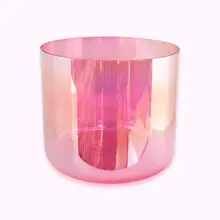
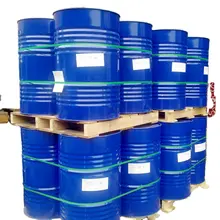
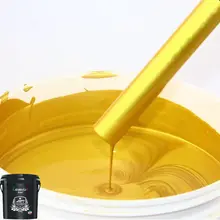
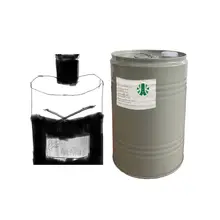






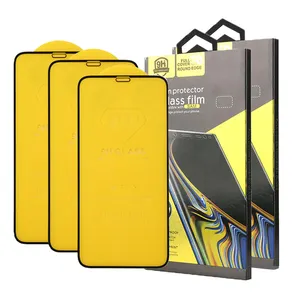























 浙公网安备 33010002000092号
浙公网安备 33010002000092号 浙B2-20120091-4
浙B2-20120091-4